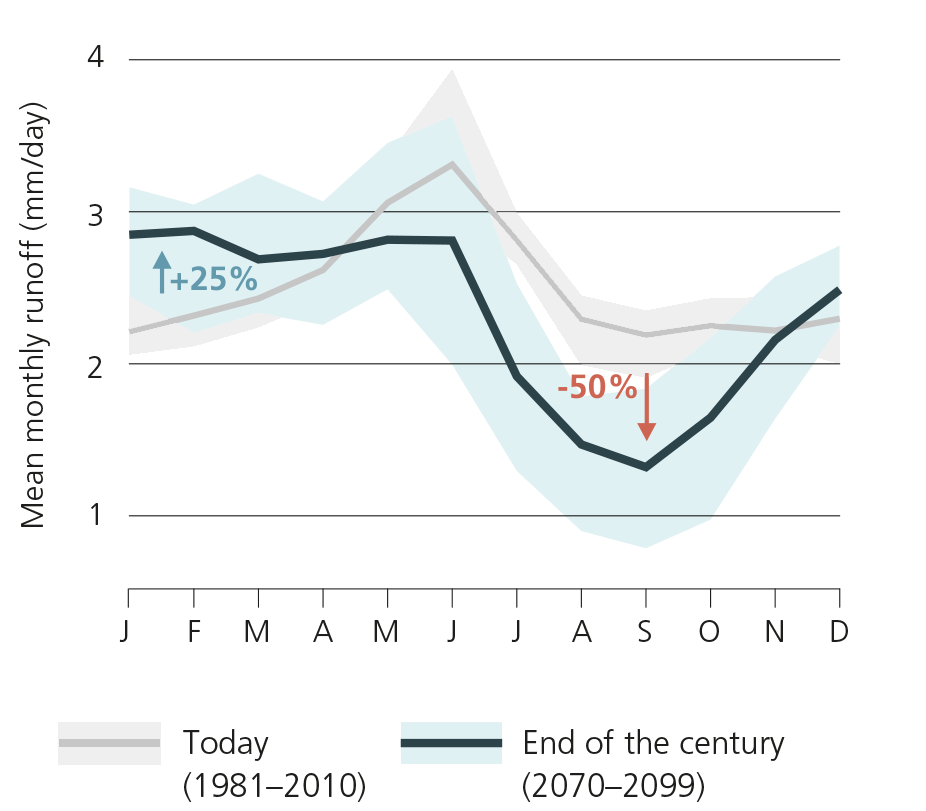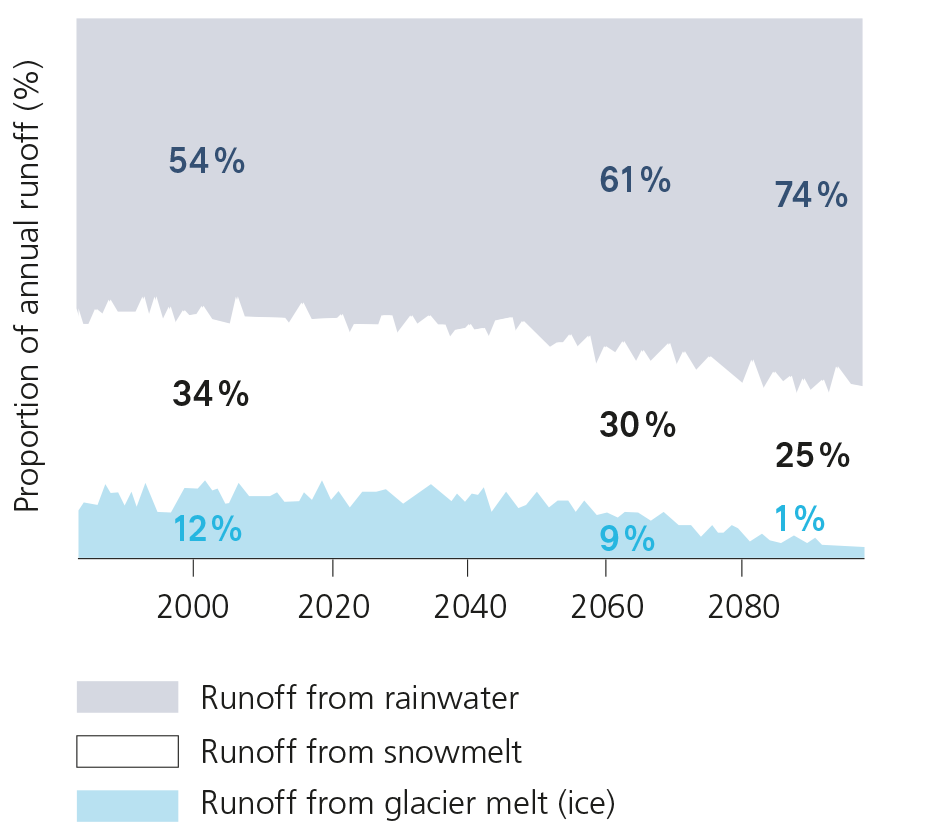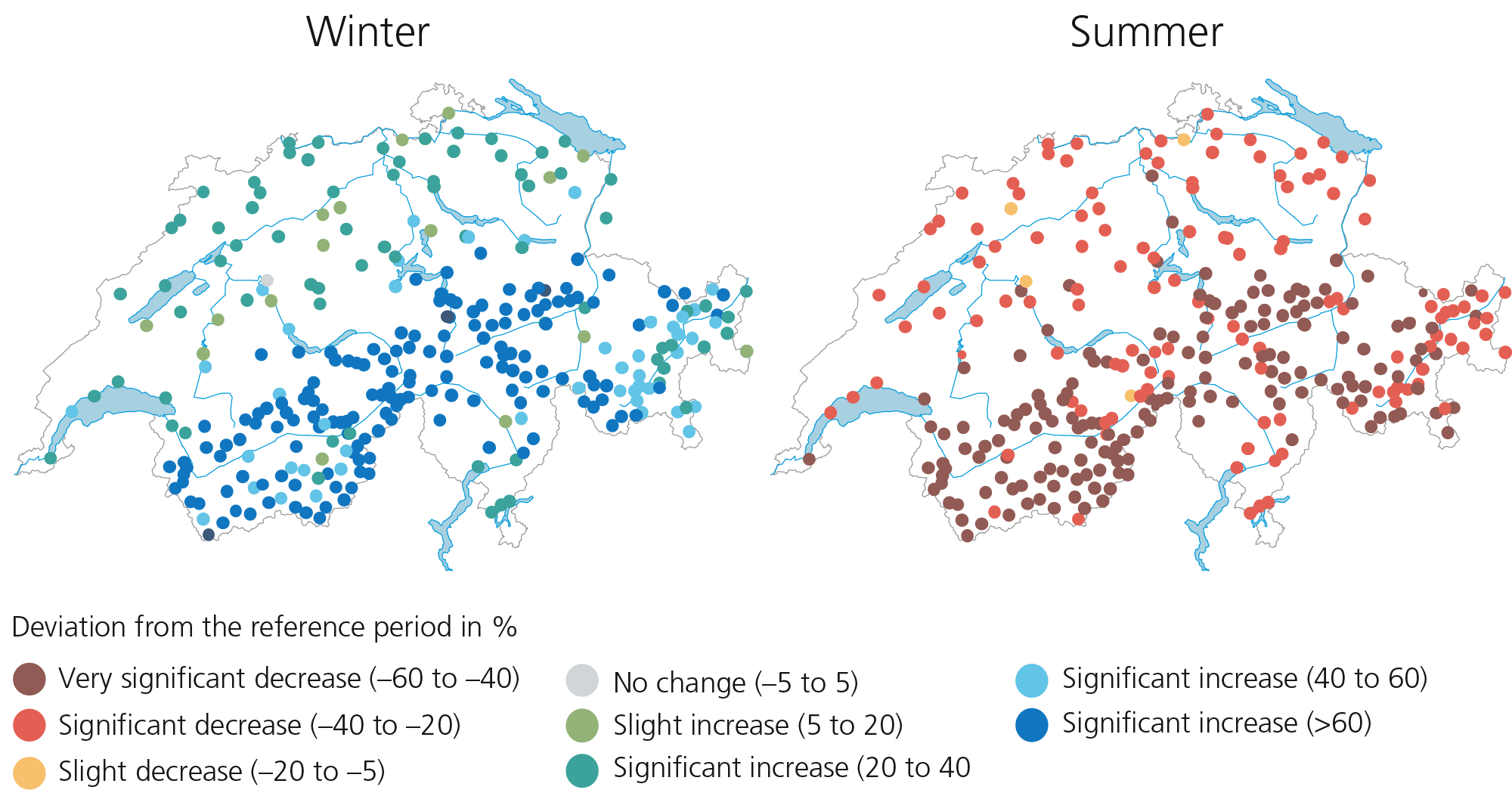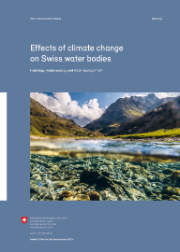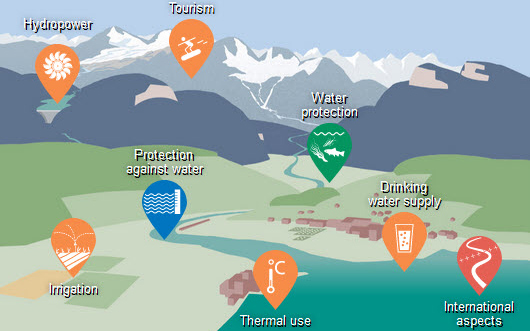The contribution of meltwater from snow and ice to runoff will continue to decrease, leading to changes in the seasonal distribution of runoff. In the future, Swiss watercourses will carry more water in winter and less in summer, although the total annual runoff will only decrease slightly.

Climate change will affect the water balance in two ways: by altering the seasonal distribution of precipitation and by increasing the air temperature. The climate scenarios show that precipitation will increase in winter and decrease in summer, with evaporation increasing in all seasons.
In winter, warming means that more precipitation will fall as rain, even at higher altitudes, and therefore run off more quickly. A smaller area of Switzerland will be snow-covered. In addition, the snowpack will form later in the year and melt earlier. As a result, runoff and groundwater recharge will increase in the winter months, whereas there will be less meltwater in spring and summer.
Annual cycle of the Rhine
In summer, higher temperatures will cause the glaciers to melt faster, meaning that the watercourses supplied by these glaciers will carry more water. However, this will only be a temporary phenomenon: meltwater from small glaciers is already starting to decrease again, with large glaciers expected to follow suit by 2050 at the latest.
Water in the Kander
More water in winter
The combined effect of all these developments is that, in the future, almost all watercourses will carry more water in winter. In the absence of climate change mitigation measures, winter runoff will increase by between 10 and 50% by the end of the century, while in summer and autumn it will decline by 30 to 50% compared with today.
The change in seasonal inflows will also affect water levels in lakes. However, total annual runoff will probably only decline by around 10%.
The seasonal dynamics of groundwater levels and spring discharge rates will also change, with high and low phases becoming more pronounced. Water levels and discharge rates will become higher in winter, and lower in summer. Water management practices must adapt to these changed conditions.
Expected changes in runoff
Expected changes
The key messages can also be found in the Hydro-CH2018 brochure, which is available in printed form or electronically as a download.
Further information
Last modification 22.06.2021
Contact
Federal Office for the Environment FOEN
Hydrology Division
Papiermühlestr. 172
3063 Ittigen


